
Nonlinear effects in shallow water waves
I recently googled for something related to the shape of waves and came across a photo of a wave that caught my eye, and it took me to a journey that lead to the article “nonlinear shallow ocean wave soliton interactions on flat beaches” by Ablowitz and Baldwin (2012).
What’s discussed in that article is that while many wave interactions can be seen as (more or less) linear, sometimes there are nonlinear effects that can be replicated in a model. So far so not surprising. But I got fascinated because the phenomenon they look at I have seen over and over again and never really paid any attention to it: Wave crests forming X or Y shapes. But looking through my archives, I even had dozens of pictures of this exact phenomenon! (Actually, I didn’t have to look further back than to a beautiful day last November, when I also observed the wavelength dependency of wave-object interactions)
Take for example the picture below: Do you see the H shape in the waves closest to shore? (In the article they would probably call it a more-complex shape, since it’s a double Y shape…)
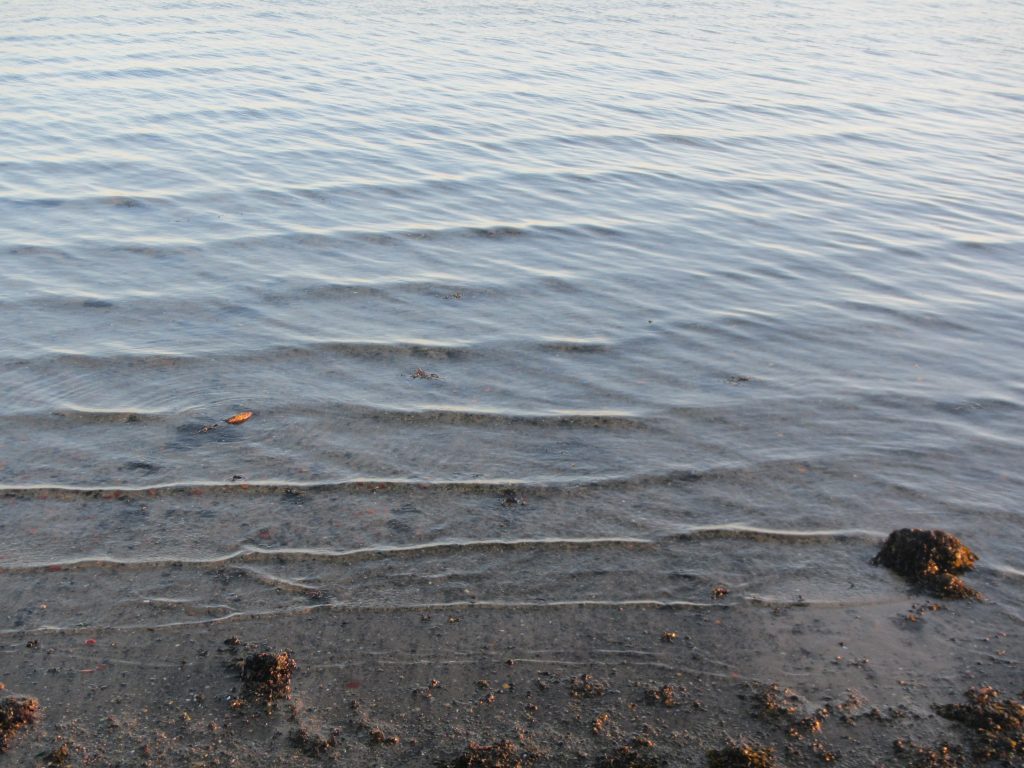
Below I’ve drawn into the picture what I mean by H-shape in green, and the typical kind of linear wave interaction in red (all crests just move on without influencing each other except in the spot where they occur at the same time, there they just add to each other):
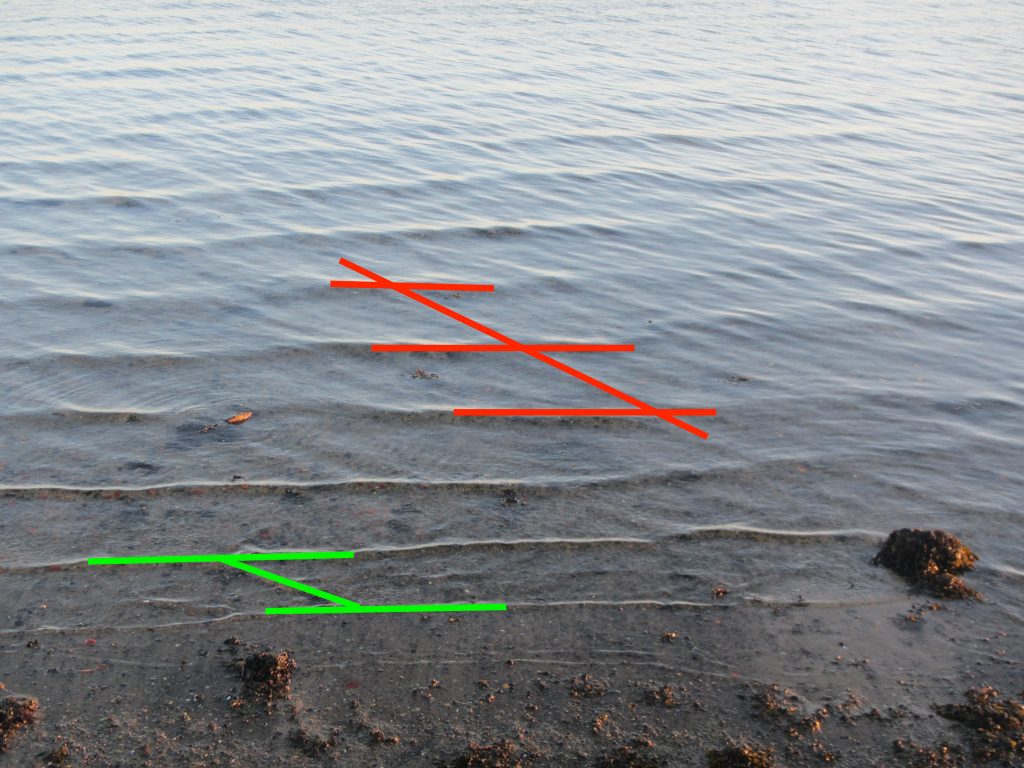
Or below, I spot an X-shape:
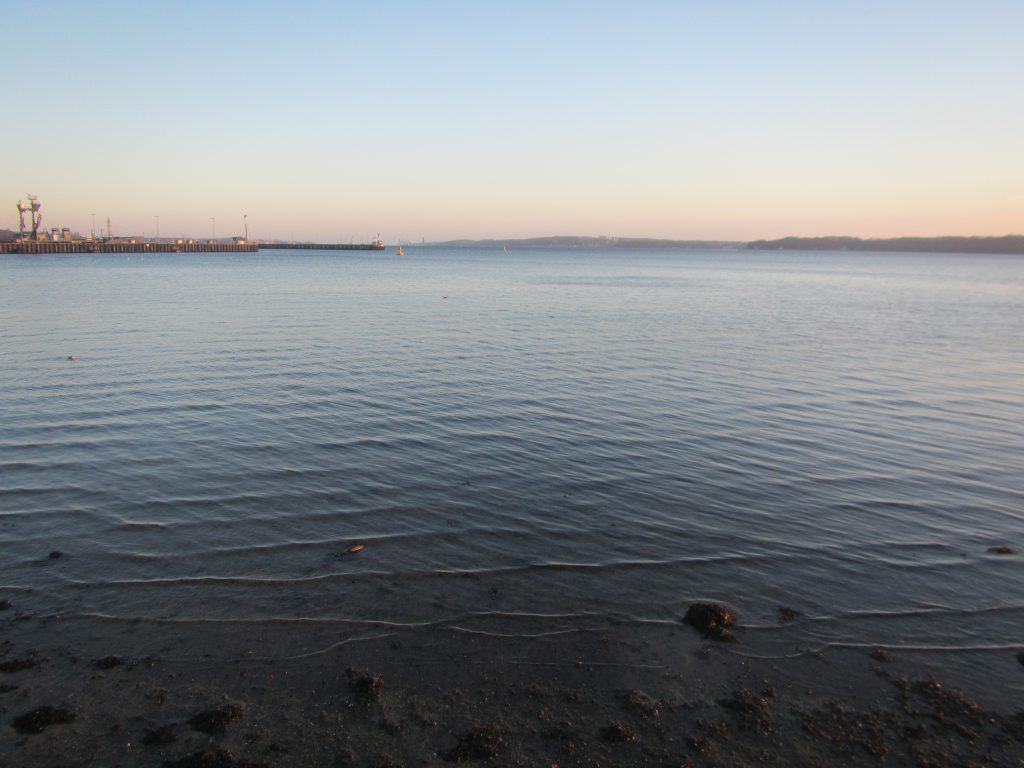
And here are several X- and Y-shapes
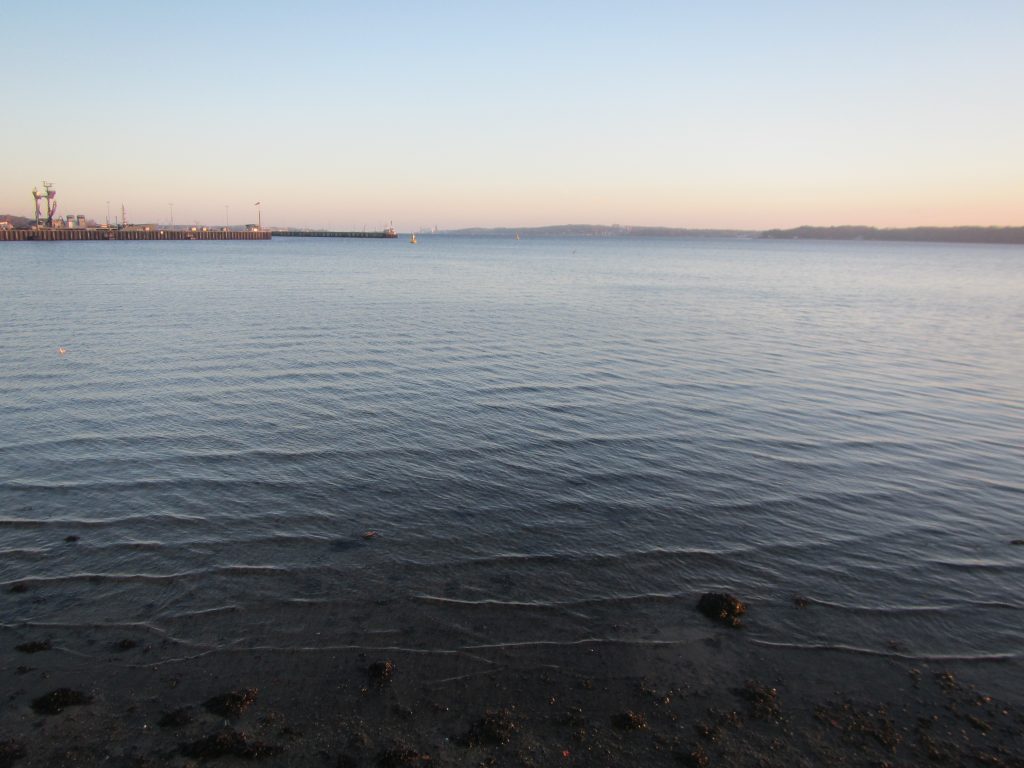
And the picture below just to give you an orientation of where you are: Yep, it’s the same spot where we usually observe foam stripes, funny waves, or ice…
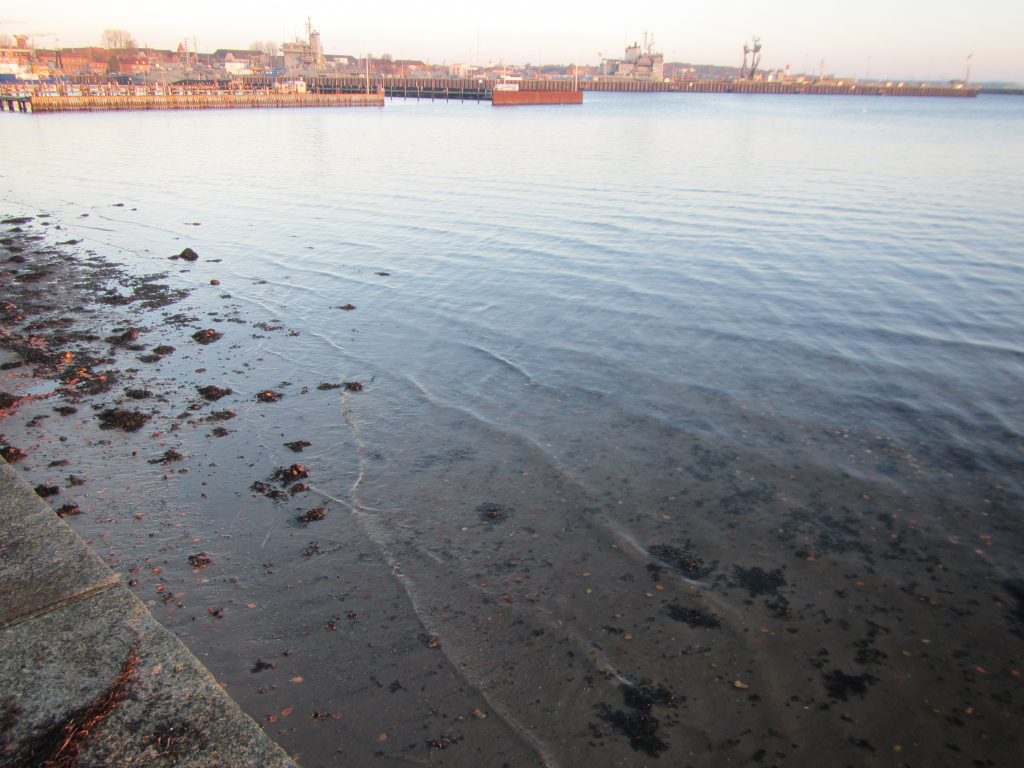
—
Mark J. Ablowitz, & Douglas E. Baldwin (2012). Nonlinear shallow ocean wave soliton interactions on flat beaches. Physical Review E, vol. 86(3), pp. 036305 (2012) arXiv: 1208.2904v1
Observing the shape of shallow water waves on a beach | Dr. Mirjam S. Glessmer says:
[…] When the water is shallow enough, the waves also change their behaviour in that usually we can just add two incoming wave fields and get a good idea of what the resulting wave field will look like, but in very shallow water, things become very nonlinear and messy. […]
Roll waves, one of the more complicated #friendlywaves I’ve gotten over the years… | Mirjam S. Glessmer says:
[…] stuff that is clearly not given in the see-saw waves we observe. And then this stuff quickly gets very non-linear… So using this Froude number definition is … questionable. Therefore the literature […]